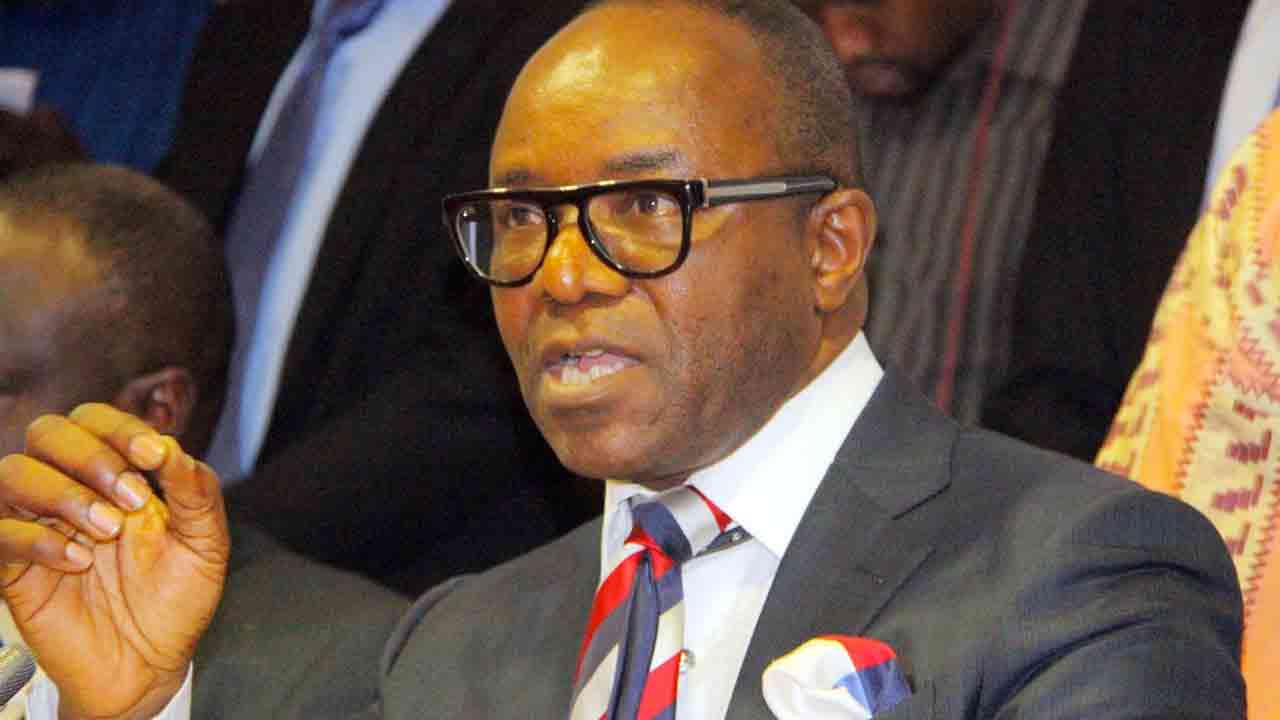- NNPC Operations Not Yet Fully Transparent
The Minister of State for Petroleum Resources, Dr. Ibe Kachikwu has said that reforms initiated by the federal government to clean up years of corrupt practices in the Nigerian National Petroleum Corporation (NNPC) have not completely guaranteed that the state oil firm is now transparently run.
This is coming as a group of civil society organisations (CSOs) operating in Nigeria’s extractive industry has accused the international oil companies (IOCs) of complicity in the huge theft of crude oil recorded in the country.
Kachikwu explained that there are still a lot of works to be done to completely transform the corporation and make it accountable and its operations transparent to all Nigerians.
The minister stated this in the October edition of the monthly podcast he released to intimate Nigerians on the status of the country’s oil and gas industry. This edition was recently released in Abuja by his office and he stated in it that the government had though made some efforts in repositioning the NNPC.
“We delivered an open NNPC, we basically opened up our books, we published and tried to be as transparent as we can, but a lot of works still needs to be done there, but for the first time we delivered the kind of NNPC that has never been the sort of NNPC that you used to know,” said Kachikwu, on the results the government had recorded in the last one year.
In a related development, a group of civil society organisations (CSOs) operating in Nigeria’s extractive industry have claimed that IOCs in the Niger Delta cannot be totally absolved of the huge theft of crude oil recorded in the country.
They said IOCs had been found culpable of stealing oil from Nigeria, and that oil theft cannot be limited to illegal refining in the Niger Delta.
Rising from a recent workshop on improving CSOs’ engagements in Nigeria’s extractive sectors which they held in Enugu, the CSOs led by Publish What You Pay (PWYP) Nigeria, also stated that it was difficult to achieve transparent contracting processes in the country’s extractive sectors.
They said in a communique signed by the National Coordinator of PWYP Nigeria, Mr. Peter Egbule, that: “It is difficult to achieve contract transparency in the extractive sector in Nigeria. Although, there are legal frameworks that regulate contracts in the industry, however, they are not always complied with.”
“Nigerians find it difficult to know the exact quantity of crude the country produces. Tax incentives are granted to companies without cost benefit analysis. Oil theft is not limited to illegal refining, IOCs have been found to be culpable of oil theft in Nigeria,” the communique stated.
It further explained: “At the moment, EITI application standards in Nigeria are faced with numerous challenges. Efforts are being often being concentrated on transparency, without adequate attention on accountability.
Experience has shown that transparency alone does not deliver good governance, it must come with accountability.”
They noted that the Land Use Act has become a legislation the states use as a justification for the exploration of minerals without adequate compensation to communities.
In their recommendations, they called on the government to ensure that citizens know the exact quantity of crude produced and lifted daily from the country’s oil fields.
“Besides transparency, environmental and human rights issues must begin to dominate discourse around EITI standards. The civil society needs to demand accountability alongside their strong demand for transparency, CSOs should make sure all facts are crosschecked and are correct before engaging in advocacy,” they added.

 Forex4 weeks ago
Forex4 weeks ago
 Naira3 weeks ago
Naira3 weeks ago
 Billionaire Watch3 weeks ago
Billionaire Watch3 weeks ago



 Naira4 weeks ago
Naira4 weeks ago






 Naira3 weeks ago
Naira3 weeks ago


 Naira2 weeks ago
Naira2 weeks ago






 Naira2 weeks ago
Naira2 weeks ago


 Naira2 weeks ago
Naira2 weeks ago






















